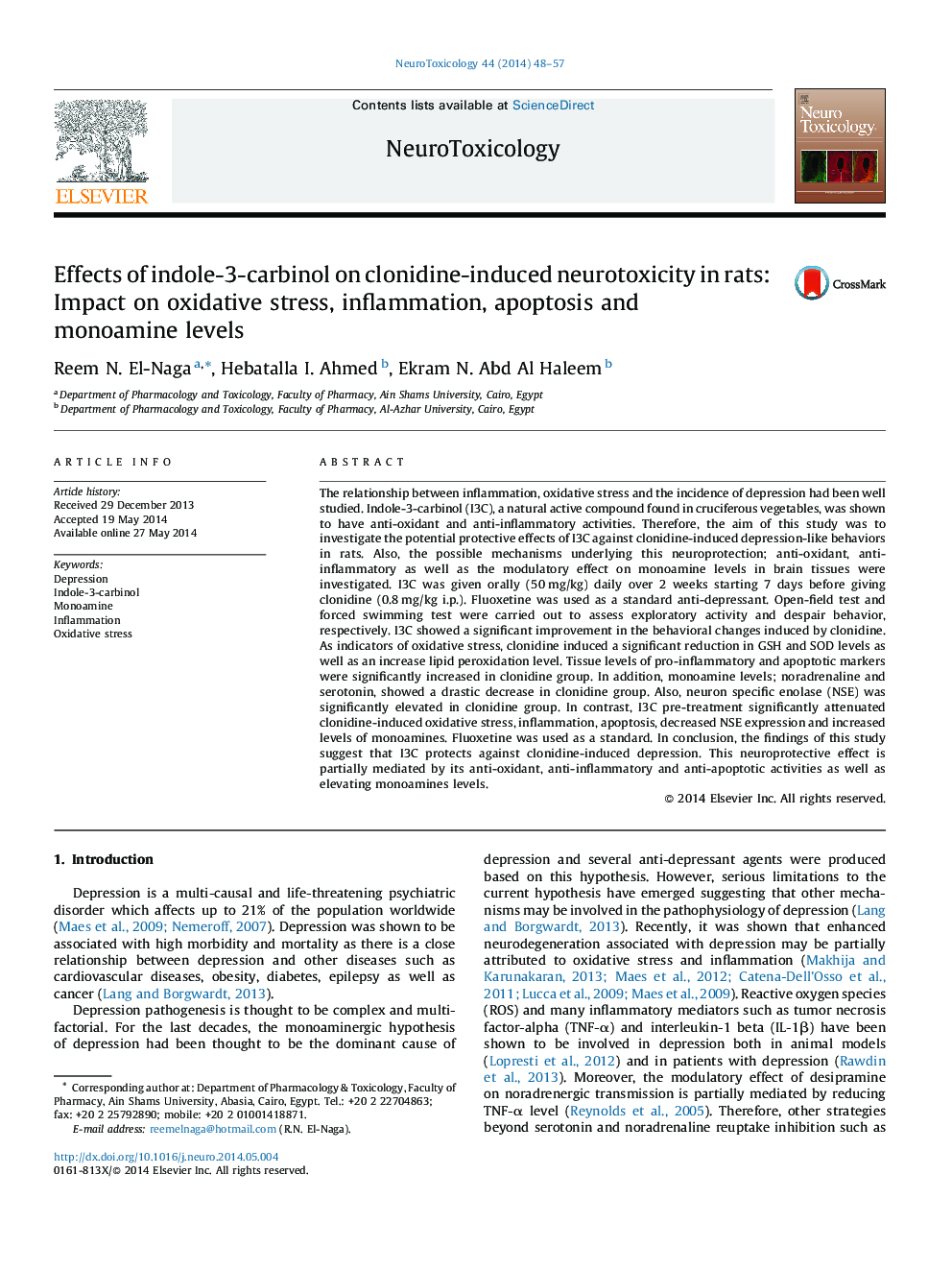| Article ID | Journal | Published Year | Pages | File Type |
|---|---|---|---|---|
| 2589658 | NeuroToxicology | 2014 | 10 Pages |
•Depression-like behavior was induced by clonidine injection in rats.•Pre-treatment with indole-3-carbinol markedly improved all behavioral parameters.•Indole-3-carbinol attenuated clonidine-induced oxidative stress and inflammation.•Indole-3-carbinol increased monoamines brain levels and decreased apoptosis.•Indole-3-carbinol showed better antidepressant effect as compared with fluoxetine.
The relationship between inflammation, oxidative stress and the incidence of depression had been well studied. Indole-3-carbinol (I3C), a natural active compound found in cruciferous vegetables, was shown to have anti-oxidant and anti-inflammatory activities. Therefore, the aim of this study was to investigate the potential protective effects of I3C against clonidine-induced depression-like behaviors in rats. Also, the possible mechanisms underlying this neuroprotection; anti-oxidant, anti-inflammatory as well as the modulatory effect on monoamine levels in brain tissues were investigated. I3C was given orally (50 mg/kg) daily over 2 weeks starting 7 days before giving clonidine (0.8 mg/kg i.p.). Fluoxetine was used as a standard anti-depressant. Open-field test and forced swimming test were carried out to assess exploratory activity and despair behavior, respectively. I3C showed a significant improvement in the behavioral changes induced by clonidine. As indicators of oxidative stress, clonidine induced a significant reduction in GSH and SOD levels as well as an increase lipid peroxidation level. Tissue levels of pro-inflammatory and apoptotic markers were significantly increased in clonidine group. In addition, monoamine levels; noradrenaline and serotonin, showed a drastic decrease in clonidine group. Also, neuron specific enolase (NSE) was significantly elevated in clonidine group. In contrast, I3C pre-treatment significantly attenuated clonidine-induced oxidative stress, inflammation, apoptosis, decreased NSE expression and increased levels of monoamines. Fluoxetine was used as a standard. In conclusion, the findings of this study suggest that I3C protects against clonidine-induced depression. This neuroprotective effect is partially mediated by its anti-oxidant, anti-inflammatory and anti-apoptotic activities as well as elevating monoamines levels.
